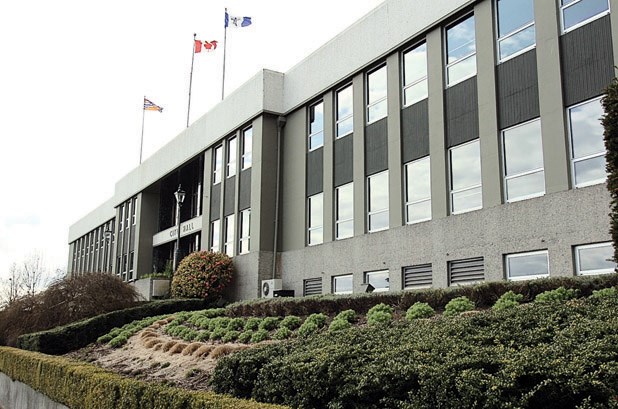New Westminster city council meetings will be sporting a new look in the fall.
Starting Sept. 14, council meetings will have a new format that eliminates the former committee of the whole meetings that were held on Monday afternoons, and followed by regular council meetings. Under the new format, meetings will start at 5:30 p.m. and open delegations will begin at 7:30 p.m.
“We will be removing the committee of the whole meeting in the afternoon. Really this is to help streamline and make our council meetings more efficient,” said Mayor Jonathan Cote. “Many people aren’t aware we have a committee of the whole meeting in the afternoon and then we have our evening regular council meeting. The agendas are exactly the same between those two meetings.”
Cote said it makes sense to combine the two meetings.
“First of all, we thought this is not the best use of councils’ time, not the best of senior staff time to have to go through a meeting twice. But what we were also finding was the better conversations were happening in the day meeting when we first had a chance to talk about it. By the time we got to the night meeting, we were passing the recommendations from the day’s meeting without some really good dialogue,” he said. “For most council watchers, you’d be watching in the evening. That’s when the community has a better chance to connect with what council is actually doing. I actually think that change is going to lead to some more interesting council meetings in the evening and more people will have a better idea of the work we are doing on city council.”
Beginning in September, New Westminster city council will have an open workshop at noon on the last Monday of the month and a public hearing at 6 p.m.
In addition to being a more efficient use of staff and council’s time, Cote expects the format will lead to “greater debate” at the evening meetings.
Part of the reason for the change is the city’s decision to create a committee on land-use and planning, which will focus on land-use and development applications. The mayor and two councillors will sit on this committee.
“This really came from a frustration, both at the council table and also in the community, that often projects got very, very far down the line before council really dug into applications or started to have some meaningful dialogue with the applicants,” Cote said. “We had some situations where we had things go back or were turned down, which from an applicant’s point of view is quite frustrating. A lot of the comments, in their view, would have been very helpful if they’d known them early on in the process.”
The subcommittee won’t be making any decisions, but will merely be trying to provide input and pushing things toward it coming to council, Cote said.
“Having said that, once it gets into first reading the job of all members of council is still to keep an open mind on the project and then to continue to hear public feedback,” he said. “Sometimes public feedback doesn’t really resonate until late in applications. That very well could still be the case and still should be a major factor in council’s deliberations.”



